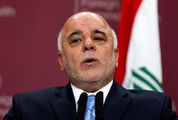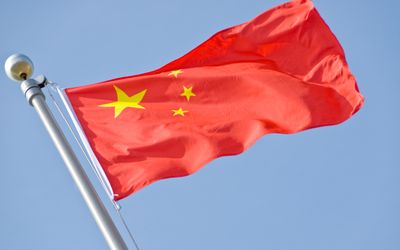BEIJING — China’s Premier Li Keqiang urged caution about rushing to change economic policy to try to revive the country’s sputtering growth, but he also signalled Beijing was prepared to take action if the economy slipped too far.
Beijing is widely expected to resist taking any broad action to support the economy, such as relaxing monetary conditions, but analysts said there had been signs of more targeted measures in recent days, such as expanded lending to small businesses and agriculture.
The commerce ministry on Wednesday said it would soon release measures to support exports and imports. It did not give specifics but analysts said they could include cutting taxes and duties.
"We believe the government’s policy stance remains unchanged for now as the slowdown is moderate, but the premier’s speech suggests that the authorities are prepared to take action and fine-tune policy if growth slows more sharply," Nomura International economist Zhiwei Zhang said in Hong Kong.
Mr Li was quoted by state television saying late on Tuesday that the government was able to achieve key economic tasks for 2013, reinforcing the official view that a 7.5% annual economic growth target remained achievable.
His remarks reiterated that economic reform had to take precedence over growth to put the economy on a more sustainable footing and wean it off a reliance on exports and investment so consumption can play a bigger role.
"Neither should we change policy orientation due to temporary economic fluctuations, which may affect the hard-won restructuring opportunity, nor should we lack vigilance and preparations when the economy might slide below the reasonable range," Mr Li was quoted as saying.
Data on Monday showed that annual gross domestic product (GDP) growth slowed to 7.5% in the second quarter, the ninth slowdown in the past 10 quarters. Analysts said the slowdown would put pressure on Beijing to quicken reforms to take up the economic slack, rather than slow them down.
Analysts have steadily cut their forecasts in 2013 for China’s growth as data consistently comes in weaker than expected and as government officials talked of slowing growth.
The analysts mostly forecast 2013 growth between 7% and 7.5%.
There has been confusion over where the government’s bottom line on growth might be, after Finance Minister Lou Jiwei was reported by the official Xinhua news agency on Friday as saying the 2013 target was 7%.
However, the Xinhua report was later changed to show Lou said 7.5%, and in recent days a number of officials have expressed confidence that the target will be met.
The Asian Development Bank (ADB) said it saw no risks to China’s economy in the short term but challenges remained longer term in dealing with problems such as income disparity, the environment and energy constraints.
"The challenge is whether China can make a smooth transition in the medium to long term," ADB President Takehiko Nakao said in Tokyo on Wednesday.
‘Safeguard the lower limits’
Mr Li reiterated that the government would safeguard the "lower limits" for economic growth and employment while keeping a lid on inflation.
"By repeating the same message several times within a week, he (Li) wants to lift public confidence on the economy and emphasise that he is earnest about stabilising growth and employment," HSBC said in a client note.
The government should focus on market-based reforms to revitalise the economy as long as growth stays within a "reasonable range", Mr Li said without elaborating.
Many analysts believe the government will step in to support the economy if year-on-year growth slips in a quarter to 7%.
"We think (Li’s remarks) mean that the macroeconomic policy stance will be kept unchanged near term, but at microlevels, there will be more progrowth efforts," Standard Charted Bank’s China economist, Li Wei, said in Shanghai.
"Indeed we already noticed that, over the past three weeks, the government has geared up its support for urban low-quality housing reconstruction, SME (small and medium-sized enterprise) financing, Lushan post-quake rebuilding, energy saving, environmental protection, IT (and) photovoltaic industries," he said.
The commerce ministry suggested its measures would help provide economic stability.
"The overall strategy is to provide an environment for companies that is conducive to stabilising growth while restructuring the economy, stabilising exports while expanding imports, lowering export costs while also exploring new markets," ministry spokesman Shen Danyang told a briefing.
Exports fell in June for the first time in 17 months and the customs administration said it saw a "grim" outlook for the current quarter.
Analysts believe the measures will be simple fine-tuning.
"We think the government will unveil measures to help relieve the burden on exporters, such as cutting export duties, increasing access to bank loans and cutting business taxes," Hwabao Trust economist Nie Wen said in Shanghai.
"We do not think the policy makers will increase export rebates since it may cause troubles or trade frictions," Mr Nie said.
China has a longstanding system of refunding some taxes on some exported goods, left over from its days of establishing itself as an exporter.
Reuters




















Change: -0.47%
Change: -0.57%
Change: -1.76%
Change: -0.34%
Change: 0.02%
Data supplied by Profile Data
Change: -1.49%
Change: 0.00%
Change: -0.47%
Change: 0.00%
Change: -0.08%
Data supplied by Profile Data
Change: 0.48%
Change: 0.86%
Change: 0.28%
Change: -0.22%
Change: 0.93%
Data supplied by Profile Data
Change: 0.25%
Change: -0.21%
Change: 0.20%
Change: -1.22%
Change: -1.21%
Data supplied by Profile Data